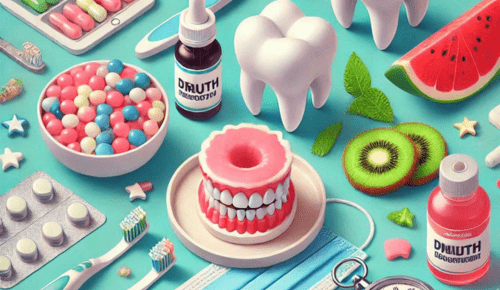How Chemotherapy Affects Your Teeth and Gums
Undergoing cancer treatment can be a challenging time. During this period, your body undergoes various changes due to chemotherapy, including your mouth. Chemotherapy is for targeting cancer cells, but it can also affect other parts of your body. This includes teeth and gums. Dealing with dental issues during cancer can make an already difficult time more stressful.
Chemotherapy works by attacking fast-growing cancer cells. But it also affects other fast-growing cells, including those in your mouth. This can cause problems like sensitive gums, a higher risk of cavities, and mouth sores. The good news is that you can manage many of these side effects with the right dental care.
The key is to have a dental team that understands your specific needs. It is recommended to visit a dental practice in Powell, TN, where dentists are experienced in treating cancer patients with dental health problems. Your dentist can also work closely with your oncology team to make sure your oral health does not interfere with your overall treatment.
What are the immediate effects of chemotherapy on your oral health?
Chemotherapy can start affecting your mouth as soon as your treatment begins. The medicine targets fast-growing cells, which also include the soft tissues and salivary glands in your mouth. You may start to notice changes in how your mouth feels within only 7 to 10 days. These changes can upset the natural balance of bacteria, which might cause problems.
What are the common oral problems during chemotherapy?
One may face various oral health problems during chemotherapy. One of the common ones is mucositis. In this condition, the lining of your mouth gets inflamed and causes painful red sores or ulcers. This might sound unpleasant, but the sores usually heal on their own within 2 to 4 weeks after your treatment ends. However, this is only as long as there is no infection.
You might also notice changes in your saliva. Chemotherapy can damage your salivary glands. This can cause your mouth to feel dry or make your saliva feel different. This can make eating, talking, and cleaning your mouth harder. The positive part is that, in most cases, your saliva and glands return to normal after your treatment ends.
How to take care of your mouth during chemotherapy
It is important to take good care of your mouth during chemotherapy to avoid complications. The National Cancer Institute suggests brushing your teeth and gums gently with a soft-bristle toothbrush 2 to 3 times a day. Further, it is recommended to use mild-flavored fluoride toothpaste and floss before bed every day.
For some people, the regular toothpaste makes their mouth sore. If the same is the case with you, you can rinse with a simple saltwater mixture instead.
If you have a dry mouth, you can try sipping water often or using mouth rinses without alcohol. You can also make a homemade rinse by mixing 1/4 teaspoon of salt and 1/4 teaspoon of baking soda in one quart of water. This rinse can help keep your mouth moist and comfortable, and you can use it as many times as you need during the day.
How your dentist can help during chemotherapy
Your dentist plays an important role in keeping your mouth healthy while you get chemotherapy. It is good to see your dentist at least 4 weeks before starting treatment. This allows them to fix your dental problems (if any) and let your mouth heal before chemotherapy begins. Your dentist can also work with your cancer doctors to make sure your oral health stays in good shape.
Protect your smile during chemotherapy!
Chemotherapy does not just affect your cancer cells, but the other parts of your body as well. It is important to take care of your dental health. Visit your dentist today!

